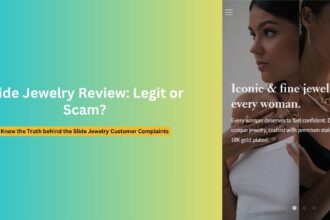The truth behind the insurance giant’s recruitment practices and business model
Northwestern Mutual has been a fixture in the American financial services landscape for over 160 years. With $250+ billion in assets and more than 4.4 million clients, the company projects an image of stability and success. But behind the polished exterior and impressive numbers lies a more complex reality – one that has left many former employees and clients questioning the company’s practices and wondering if Northwestern Mutual operates in a way that borders on deceptive.
The Bait and Switch: From Job Listing to Reality
When you see the listing on LinkedIn you think ‘so they’re going to help me get my licenses, I’m going to be advising people on their overall finances, and the pay is $75k-100k + bonuses’ right? WRONG.
This quote from a former Northwestern Mutual recruit encapsulates what many describe as their initial experience with the company. Job listings advertise “Financial Advisor” positions with impressive salary ranges, but the reality that greets new hires is starkly different.
What candidates often discover after accepting positions:
- No base salary – 100% commission-based compensation
- Primary focus on selling life insurance, not comprehensive financial planning
- Requirement to provide 200-250 names from personal networks as potential clients
- Expectation to work 10-12 hour days with little to no income for the first six months
A former Director of Recruitment in San Diego was blunt in their assessment: “Will absolutely have to depend on your friends and family to build a book of business to the point of alienating them” and “Will watch people go broke just trying to give the job time.”
The Numbers Game: Inside the “Meat Grinder”
Perhaps the most telling statistic about Northwestern Mutual’s business model comes from multiple sources within the company: a 90-95% turnover rate within the first year for new financial representatives.
“Churning 30+ new reps every month to keep only a few after a year is how the system sustains itself,” wrote one former representative from Seattle. “I’m not challenging Granum’s math, but I am challenging the ethics of a meat grinder like that.”
This extraordinary churn rate isn’t accidental—it appears to be a fundamental component of the business model. New representatives are brought on in large numbers, expected to exhaust their personal networks for sales, and then typically leave when they can’t sustain enough business to survive on commissions alone. The company retains the policies sold, benefiting from the short-term labor of representatives who often leave financially worse off than when they started.
A former financial advisor in Tampa was more direct: “Their whole little scam for the employees is hiring someone, getting 250 leads from them, have them work them while they barely make any money then hope they quit.”
The Personal Cost: “Ruining Goodwill” and Damaged Relationships
Beyond the financial struggles, many former representatives describe a heavier personal toll: damaged relationships and lost social capital.
“The more social status you are willing to ruin, the better you’ll do there,” explained one commenter familiar with Northwestern Mutual’s practices. “They completely ruin the good will associated with the brand/person, in exchange for some return on investment.”
The expectation to monetize personal relationships creates ethical dilemmas for many representatives:
- Pressure to sell products to friends and family who may not need them
- Having to choose between meeting sales quotas and maintaining personal relationships
- Becoming known as “that insurance person” in social circles
- Facing rejection from close contacts who feel they’re being used
One particularly disturbing account described a representative who “tried to use my brother dying as an excuse to reach out and set up a meeting.” The commenter added: “Called him out on it and haven’t heard from him since. None of my friends speak with him anymore, he’s completely sold his soul.”
The Products: Are Clients Being Well-Served?
The high-pressure sales environment raises valid questions about whether Northwestern Mutual clients receive appropriate financial products for their needs.
Consider the case shared on a financial forum by a 39-year-old single person with no dependents who had been sold multiple life insurance policies by Northwestern Mutual. A retired insurance executive’s advice was unequivocal: “Trust your gut. A 39-year-old single person with no dependents doesn’t need any life insurance beyond that which is supplied for free by your workplace. You were sold a bill of goods by the insurance salesman.”
Northwestern Mutual representatives focus heavily on selling whole life insurance policies, which:
- Typically carry higher commissions than term life insurance
- Often have significantly higher premiums than term policies
- Include an investment component that many financial experts consider inferior to direct investing
- May not be appropriate for many clients, particularly young people without dependents
The company’s products themselves are generally considered financially sound—Northwestern Mutual maintains excellent financial strength ratings. The concern lies in whether these products are being appropriately matched to clients’ needs or pushed regardless of suitability.
Beyond the Controversy: The Northwestern Mutual Defenders
Despite the numerous criticisms, Northwestern Mutual does have its defenders. Successful financial representatives who survived the initial challenges point to significant advantages:
“I choose who I work with. I have access to first-rate insurance products. I have the opportunity to help Americans with an area of planning that most advisors are afraid to discuss. I can sell my investment book at retirement (I own it, not NM),” wrote one financial advisor who has been with the company for over five years.
Corporate employees also generally report positive experiences, citing:
- Good work-life balance and benefits
- Stable employment with networking opportunities
- Strong company culture and supportive colleagues
Northwestern Mutual as a company remains financially strong, pays claims reliably, and has served millions of clients. The concerns raised primarily focus on recruitment practices and the advisor business model rather than the fundamentals of the company itself.
Final Verdict: Is Northwestern Mutual Scam or Legitimate Opportunity?
Is Northwestern Mutual a scam? The answer requires nuance. The company is unquestionably legitimate in the legal sense—it holds proper licenses, pays claims, and delivers the products it sells. Its corporate operations and financial strength remain impressive after more than a century and a half in business.
However, the recruitment and business practices for financial representatives have raised serious ethical concerns from many who have experienced them firsthand. The combination of:
- Potentially misleading job advertisements and income claims
- A business model that seems to expect and accept extreme turnover
- Pressure to monetize personal relationships
- Focus on selling high-commission products that may not always be in clients’ best interests
Creates a situation that many former employees describe in terms that border on predatory.
Perhaps the most accurate assessment comes from a commenter who noted: “It’s not technically a scam, but that doesn’t mean it’s a good job.”
For those considering a position with Northwestern Mutual, the wealth of first-hand accounts suggests proceeding with extreme caution and asking pointed questions about:
- Actual compensation structure and average first-year earnings
- Specific expectations for client acquisition
- True turnover rates for new representatives
- Written details on any training stipends or guaranteed income
For consumers approached by Northwestern Mutual representatives, the advice is to seek second opinions, particularly on whole life insurance policies, and to verify that any recommended products truly match their financial needs rather than simply generating commissions.
The debate over Northwestern Mutual’s practices will likely continue, but one thing seems clear: behind the polished corporate image lies a business model that has left a trail of disillusioned former employees questioning whether the “opportunity” they were sold was ever real in the first place.



































